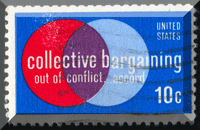Part II
Analysis of the Pool Re Decision
If you read Part I you know the arbitration program in PoolRe case was, to put it mildly, inadequate to meet the needs of the multi-party, multi-contract dispute that arose out of the parties’ legal relationships. Perhaps the saving grace is that the both the district court and the Fifth Circuit Court of Appeals vacated the award, which is what Sections 5 and 10 of the Federal Arbitration Act require.
 The Fifth Circuit addressed whether the district court erred by: (a) vacating the arbitration award on the ground the arbitrator exceeded his powers; (b) vacating the entire award; and (c) denying the motion to compel arbitration of the Phase II Claims. Finding no error, the Fifth Circuit affirmed the district court’s judgment in its entirety.
The Fifth Circuit addressed whether the district court erred by: (a) vacating the arbitration award on the ground the arbitrator exceeded his powers; (b) vacating the entire award; and (c) denying the motion to compel arbitration of the Phase II Claims. Finding no error, the Fifth Circuit affirmed the district court’s judgment in its entirety.
The District Court Correctly Concluded that the Arbitrator Exceeded his Powers
The Fifth Circuit held that the arbitrator exceeded his powers because the Arbitrator: (a) was not properly appointed under the terms of the Reinsurance Agreement’s arbitrator selection provisions, which required him to be “selected by the Anguilla, B.W.I. Director of Insurance;” and (b) decided the dispute under the American Arbitration Association’s rules when the Reinsurance Agreement required arbitration under International Chamber of Commerce (“ICC”) Rules.
Arbitrator not Selected as Required by the Reinsurance Agreement’s Arbitrator Selection Provisions
The district court held vacatur was required because the Arbitrator “was not ‘the actual decisionmaker that [PoolRe and the Captives] selected as an integral part of their agreement.'” Slip op. at 9 (quoting district court). The Fifth Circuit held that “the district court properly vacated the arbitrator’s award with regard to the claims against PoolRe[,]” because the Arbitrator “was appointed in the manner provided in the [Engagement Agreement’s] Billing Guidelines — to which PoolRe was not a party — but was appointed in a manner contrary to that provided in the Reinsurance Agreements between PoolRe and the Captives, which required ‘select[ion] by the Anguilla, B.W.I. Director of Insurance.'” Slip op. at 10-11. The Capstone Entities “submitted [their] original arbitration demand to [the Arbitrator][,]” but “PoolRe,” said the Court, “only intervened in that arbitration after [the Anguilla Financial Services Commission] notified Pool Re that no Director of Insurance existed.” Slip op. at 10-11. The Arbitrator thus “had not been ‘selected according to the contract specified method’. . . when he decided the dispute between Pool Re and the Captives.” Slip op. at 11 (quoting Bulko v. Morgan Stanley DW Inc., 450 F.3d 622, 625 ((5th Cir. 2006)).
The Fifth Circuit’s decision is fully consistent with the Federal Arbitration Act, under which “arbitration is a matter of consent, not coercion.” Stolt-Nielsen, S.A. v. AnimalFeeds Int’l Corp., 559 U.S. 662, 678-80 (2010) (citation and quotations omitted). Courts are supposed to enforce arbitration agreements according to their terms, and among the most important terms of an arbitration agreement are those concerning arbitrator selection. See Lefkovitz v. Wagner, 395 F.3d 773, 780 (2005) (Posner, J.) (“Selection of the decision maker by or with the consent of the parties is the cornerstone of the arbitral process.”); see, e.g., 9 U.S.C. § 5 (“If in the agreement provision be made for a method of naming or appointing an arbitrator or arbitrators or an umpire, such method shall be followed. . . .”); Convention on the Recognition and Enforcement of Foreign Arbitral Awards, Art. V(1)(d), June 10, 1958, 21 U.S.T. 2519, T.I.A.S. No. 6997 (a/k/a the “New York Convention”) (implemented by 9 U.S.C. §§ 201, et. seq.) (award subject to challenge where “[t]he composition of the arbitral authority or the arbitral procedure was not in accordance with the agreement of the parties”); Stolt-Nielsen, 559 U.S. at 668, 670 (one of the FAA’s “rules of fundamental importance” is parties “may choose who will resolve specific disputes”) (emphasis added; citations omitted); Encyclopaedia Universalis S.A. v. Encyclopaedia Brittanica, Inc., 403 F.3d 85, 91-92 (2d Cir. 2005) (vacating award by panel not convened in accordance with parties’ agreement); Cargill Rice, Inc. v. Empresa Nicaraguense Dealimentos Basicos, 25 F.3d 223, 226 (4th Cir. 1994) (same); Avis Rent A Car Sys., Inc. v. Garage Employees Union, 791 F.2d 22, 25 (2d Cir. 1986) (same).
Arbitrator Exceeded his Powers by Deciding the Disputes between Pool Re and the Captives under the AAA Rules Rather than under the ICC Rules
The Fifth Circuit also held that the Arbitrator exceeded his powers by deciding the disputes between Pool Re and the Captives under the AAA Rules because the Reinsurance Agreements required “all disputes [to] ‘be submitted for biding, final, and nonappealable arbitration to the [ICC] under and in accordance with its then prevailing ICC Rules of Arbitration.'” Slip op. at 10-11. The Court explained that it “interpret[s] clauses providing for arbitration in accordance with a particular set of rules as forum selection clauses.” Slip op. at 10-11 (quotation and citations omitted). And “[i]f the parties’ agreement specifies that the laws and procedures of a particular forums shall govern any arbitration between them, that forum-selection clause is an important part of the arbitration agreement, and, therefore, the court need not compel arbitration in a substitute forum if the designated forum becomes unavailable.” Slip op. at 11 (quotations and citations omitted). By applying the “the AAA rules [instead of the ICC Rules] to the dispute[,]” the Arbitrator “acted contrary to an express contractual provision,” and therefore exceeded his powers within the meaning of Section 10(a)(4) of the Federal Arbitration Act. Slip op. at 11 (quotation, citation and brackets omitted). Continue Reading »









